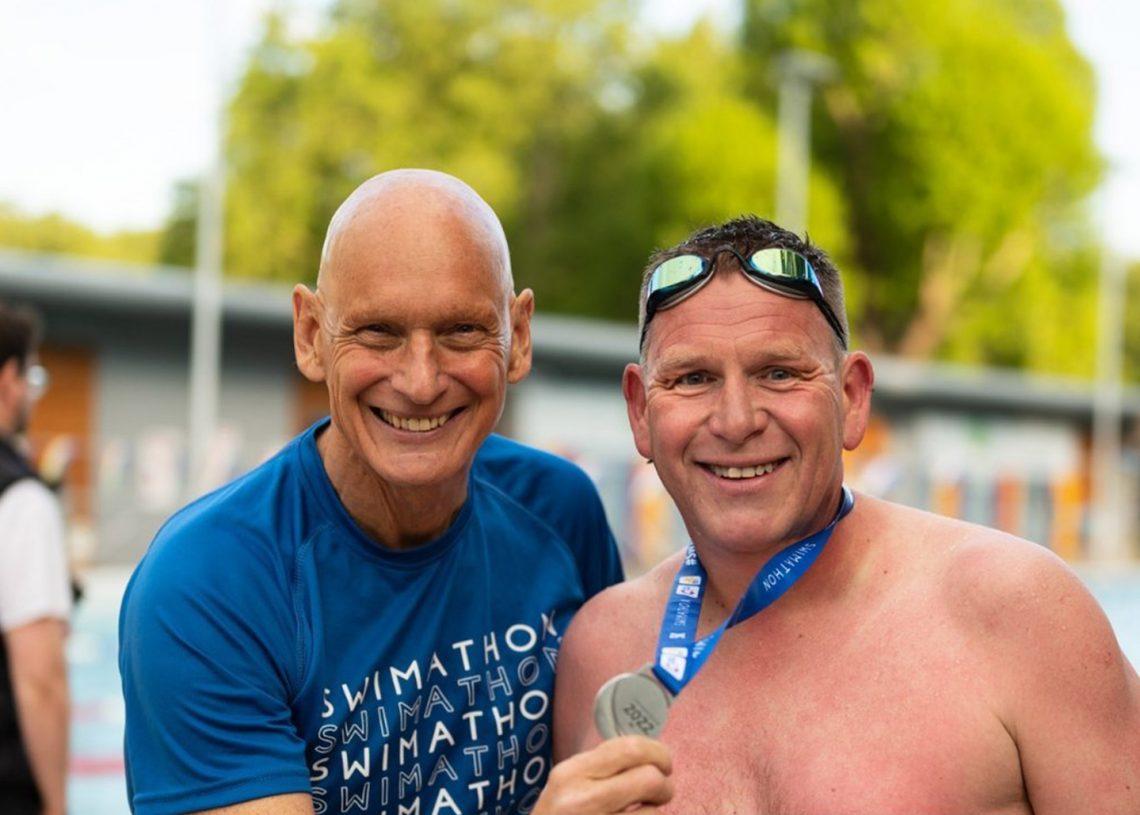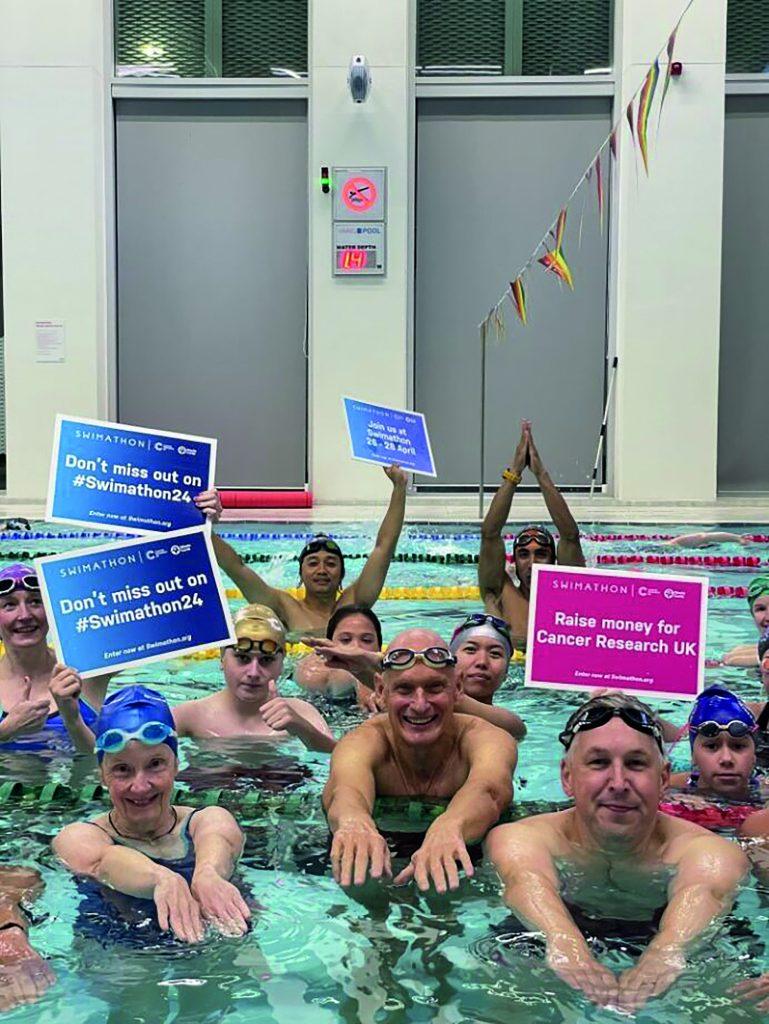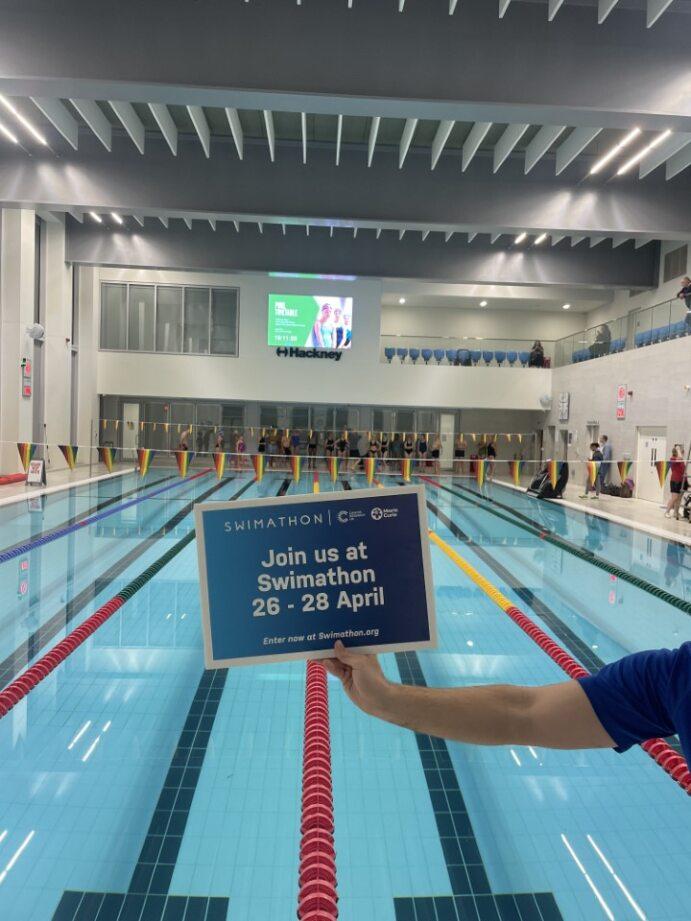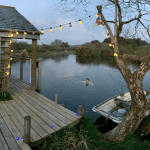
Gifting swimming forward
Olympian, cold water swimmer and British sporting hero. Jonathan Cowie speaks to Swimathon President Duncan Goodhew.
“A good day is a one swim day, a great day is a two swim day.”
Forty-four years on from winning gold in the 100m breaststroke at the Moscow Olympics, Duncan Goodhew is as in love with swimming as he ever was. Our most recognisable Olympian has dedicated his career to promoting swimming and its benefits. And it is a love that extends to open water as well as pool swimming.
“I split my time between pool swimming and open water swimming,” says Duncan, who is a member of the Serpentine Swimming Club in London’s Hyde Park. He swims all year round in the Serpentine lake, breaking the ice in winter.
“It’s a great community,” he says. “A lot of my open water swimming is socially based. The Serpentine is a fantastically social club – and very eclectic!”
Like many of us, Duncan enjoys open water and pool swimming for different reasons. “I go down to the Serpentine and do the crazy stuff and go to the pool, especially during the winter, to get the fitness training in,” he says. “The other day there was ice on the water – it was hardly a swim!”
Childhood hero
Duncan was in many ways an unlikely Olympian. Dyslexic and bald (he lost his hair after falling out of a tree as a boy), swimming was his saviour. I have to admit that speaking to Duncan is one of those moments when you have to pinch yourself. When I was growing up in the 1980s, Duncan was a regular on children’s TV, from It’s a Knockout to The Sooty Show, extolling the virtues of swimming and inspiring a generation to get in the pool.
I swam breaststroke for my school – and now to find out that Duncan is also a winter swimmer is exciting news for me! I ask him why he swims in the cold as well as the pool.
“I whittled it down to one word,” he says, “and that word is ‘contrast’. The fact that you are so close to nature and away from everything else, the fact that you survived it. It is just incredibly exhilarating, it’s like someone has turned on your central heating both mentally and physically.”
He enjoys pool swimming for “incredibly different reasons”. He explains that swimming in the pool is probably the purest of all sports: it is such a controlled environment it is akin to astronaut training. The smallest changes to technique can be tracked and evaluated. “Your eyes are in the water, your ears are in the water, your mouth is in the water – it is this complete environmental sport. It challenges you physically and mentally because it is so objective, so remorseless.”
The 10km open water swim wasn’t an Olympic event until 2008. If it had been a choice when Duncan was competing, would it have been something he would have been interested in?
“Not a chance!” he laughs. “I am a sprinter. I love open water swimming because it is such a challenge, and as I have got older, open water has really suited me. In a pool I find doing distance hard, but in the open water it is easier. I am not a natural distance athlete.”


Duncan has been involved with Swimathon since the event was launched by Princess Diana in 1987. Whereas running and cycling had their mass participation events, swimming had nothing that involved the public on the same scale. Swimathon changed all that. It is now the world’s largest annual fundraising swim and since its inception has helped raise more than £55 million for a variety of charities. But as well as raising money for charity, it plays an essential role in promoting and supporting the sport of swimming.
A challenge for all swimmers
“We are a nation of swimmers,” says Duncan. “The pandemic really hit the sport hard, but we are recovering.” With the recent boom in wild swimming, Duncan believes that Swimathon is a great challenge for outdoor swimmers, whether in the pool or open water.
“For open water swimmers, it is not just about hitting your target,” says Duncan. “It’s also about your belief in our sport. It’s about teaching kids to swim. By entering Swimathon you are not just raising money for Marie Curie and Cancer Research UK, you are also supporting your local pool and our sport itself. If pools stay open, they will teach the next generation of swimmers. You are gifting swimming forward.”
Swimathon also offers open water options, from lidos and lakes up and down the country to MySwimathon, where you can take on your own Swimathon challenge at any outdoor venue, whether that be a specific outdoor Swimathon venue or your favourite open water swim spot.
“We evolved to exercise, we didn’t evolve to sit on a chair,” says Duncan. “When we exercise our bodies secrete hormones that make us feel better and make us better operationally. Swimming just takes that to a whole other level. By entering Swimathon you are keeping our sport in good health so others can enjoy the deep, ingrained and brilliant pleasure we all take from swimming.”
Swimathon 2024 takes place 26-28 April. Choose to swim 400m, 1.5k, 2.5k, 5k, or any other distance as part of MySwimathon.
MySwimathon runs between 19 April and 5 May at any outdoor venue of your choice.
Find out more and enter now at swimathon.org









